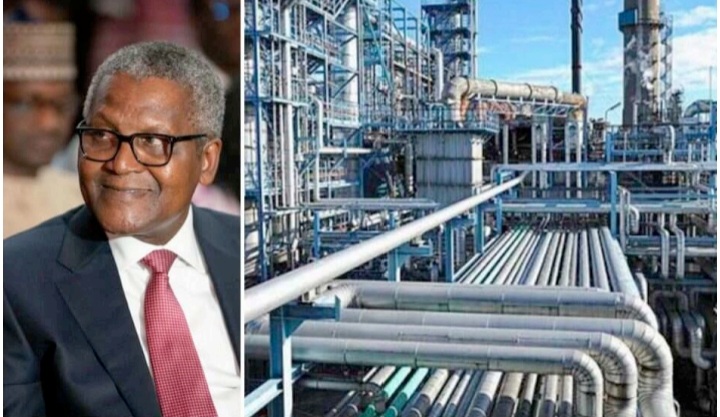EDITORIAL: Why IOCs Should Support Dangote Refinery

The raging controversy between the Dangote Refinery and Petrochemicals and the International Oil Companies (IOCs) in Nigeria has raised significant concerns about the country’s energy sector.
Africa’s richest entrepreneur and promoter of the world’s largest single train refinery, Aliko Dangote, recently accused the IOCs of sabotaging his efforts to end Nigeria’s reliance on imported refined fuel products.
This calls for serious concern, and it should be treated as a matter of urgent national importance. Dangote’s allegations are straightforward: the IOCs are deliberately undermining the $19 billion Dangote Refinery by artificially inflating crude oil prices. According to Devakumar Edwin, Vice President of Oil and Gas at Dangote Industries Limited, the multinationals’ actions are forcing the refinery to import crude from distant nations, such as the United States, resulting in higher production costs. The situation is particularly frustrating for Nigerians, who have long suffered from high fuel prices and scarcity.
On their part, the IOCs have not directly addressed the accusations. Instead, they have chosen to defend their actions through proxies who failed to understand that Dangote refinery is a strategic national asset whose interest is almost cotaminous with the national interest. While Dangote exonerated the Nigerian National Petroleum Corporation (NNPC) from the alleged conspiracy, it remains evident that tensions persist between the IOCs. As citizens grapple with rising fuel costs, the need for clarity and accountability becomes paramount.
IOCs should actively support Dangote’s efforts because Nigeria’s dependence on imported refined petroleum products has been a longstanding issue. Dangote’s refinery, with its capacity of 650,000 barrels per day, has the potential to significantly reduce this dependency. By supporting the refinery, the IOCs can contribute to Nigeria’s energy security and stability.
There is also the economic justification that must be considered because the successful operation of the Dangote Refinery will boost Nigeria’s economy. It will create jobs, enhance local expertise, and stimulate economic growth. The IOCs, as major players in the energy sector, should recognize the positive impact of a functional refinery on the nation’s overall prosperity.
It is trite that high fuel prices have burdened Nigerians for years. Hence, the Dangote Refinery aims to produce refined products locally, which could lead to more competitive prices. By cooperating with Dangote, the IOCs can help alleviate the financial strain on citizens.
Similarly, supporting Dangote refinery will send a positive signal to other investors. If the IOCs actively collaborate with the refinery, it will encourage further investments in Nigeria’s energy infrastructure as a thriving refinery sector will bring prosperity benefits to everyone involved.
As the substantive Minister of Petroleum Resources and the President of Nigeria, President Bola Ahmed Tinubu holds a dual responsibility. Nigerians look to him for answers regarding the government-owned refineries’ delayed operations and the persistent fuel challenges. Tinubu must address the controversy, provide explanations, and outline a clear path forward. His leadership will determine whether Nigeria can overcome its energy woes.
The IOCs should recognize the importance of the Dangote Refinery and actively support its success. By doing so, they will be contributing to Nigeria’s energy independence, economic growth, and the well-being of its citizens. President Tinubu, too, must engage in transparent dialogue to address the nation’s concerns. Together, we can move toward a brighter energy future for Nigeria.
